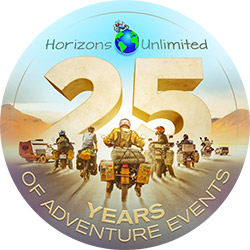
Motorcycle accidents can change people's lives because they often cause serious physical injuries and a lot of psychological trauma stress. Post-Traumatic Stress Disorder (PTSD) is a psychological condition that many motorcycle accident survivors have. This disorder can have long-lasting effects on the person who has it, making it hard for them to live a normal life and harder for them to get better.
Understanding PTSD After Motorcycle Accidents
Motorcycle accidents are more traumatic than car accidents because riders aren't well protected and are more likely to get hurt. This vulnerability can make people more likely to develop PTSD. Working with a motorcycle accident lawyer may be necessary to deal with the legal issues and get compensation.
However, it is also important to deal with the physiological effects. Early identification and knowledge of PTSD symptoms can be very important for getting the right help and care.
Why Motorcycle Accidents Trigger PTSD
The nature of motorcycle accidents often increases the risk of developing PTSD. Motorcyclists don't have much protection compared to car drivers. This leads to increased vulnerability and more severe injuries.
Because these accidents happen so quickly and violently, victims may be left in shock, which can make PTSD worse. Seeing other people get seriously hurt or die during the accident can also make the psychological trauma worse.
Common Symptoms of PTSD in Motorcycle Accident Survivors
PTSD symptoms are often different from one person to the next and can show up in different ways. There are, however, a few common signs that a survivor may be dealing with this problem. Some of these symptoms are:
- Flashbacks and Intrusive Memories: Having nightmares or having thoughts that keep coming back about the motorcycle accident.
- Avoidance: Choosing to stay away from people, places, or things that remind them of the accident.
- Hyperarousal: Being quickly startled, feeling tense, or having trouble sleeping are all signs of hyperarousal.
- Negative Thoughts and Mood Changes: Experiencing depression, guilt, or loss of interest in daily activities.
The Impact of PTSD on Daily Life
PTSD can make it very hard for people who have been in motorcycle accidents to go about their daily lives. This condition could have an impact on their job, their relationships, and their general well-being. It's common for survivors to have trouble dealing with strong feelings and unwanted thoughts. PTSD patients often have to deal with the following problems:
- Having trouble keeping a job because of concentration issues or anxiety.
- Tense relationships with family and friends because of irritability or withdrawal.
- There is a higher chance that someone will abuse drugs to treat themselves or deal with emotional pain.
Seeking Professional Help for PTSD
Survivors who are showing signs of PTSD must get professional help immediately. Mental health experts can diagnose PTSD and treat it effectively with things like medication and therapy. Some common treatment methods are:
- Cognitive behavioral therapy (CBT) helps people change the negative thought habits that make them feel bad.
- Exposure therapy helps trauma survivors face and work through memories of the experience in a safe setting.
- Medication such as antidepressants or anti-anxiety medicines may be given to help control symptoms.
Early intervention can make a big difference in lessening the intensity of symptoms and improving the mental health of the survivor.
Coping Strategies for Motorcycle Accident Survivors with PTSD
Professional help is very important, but there are also ways to cope that can help people get better. These self-help techniques can help you deal with your problems and improve your mental health:
- Mindfulness and Relaxation Techniques: Yoga, meditation, and deep breathing can help you feel less anxious and concentrate better.
- Support groups: Talking to people who have been through the same kind of stress can help you feel like you're part of a community that understands what you're going through.
- Maintaining a Routine: Having a daily routine can help you feel stable and in charge while you're recovering.

















